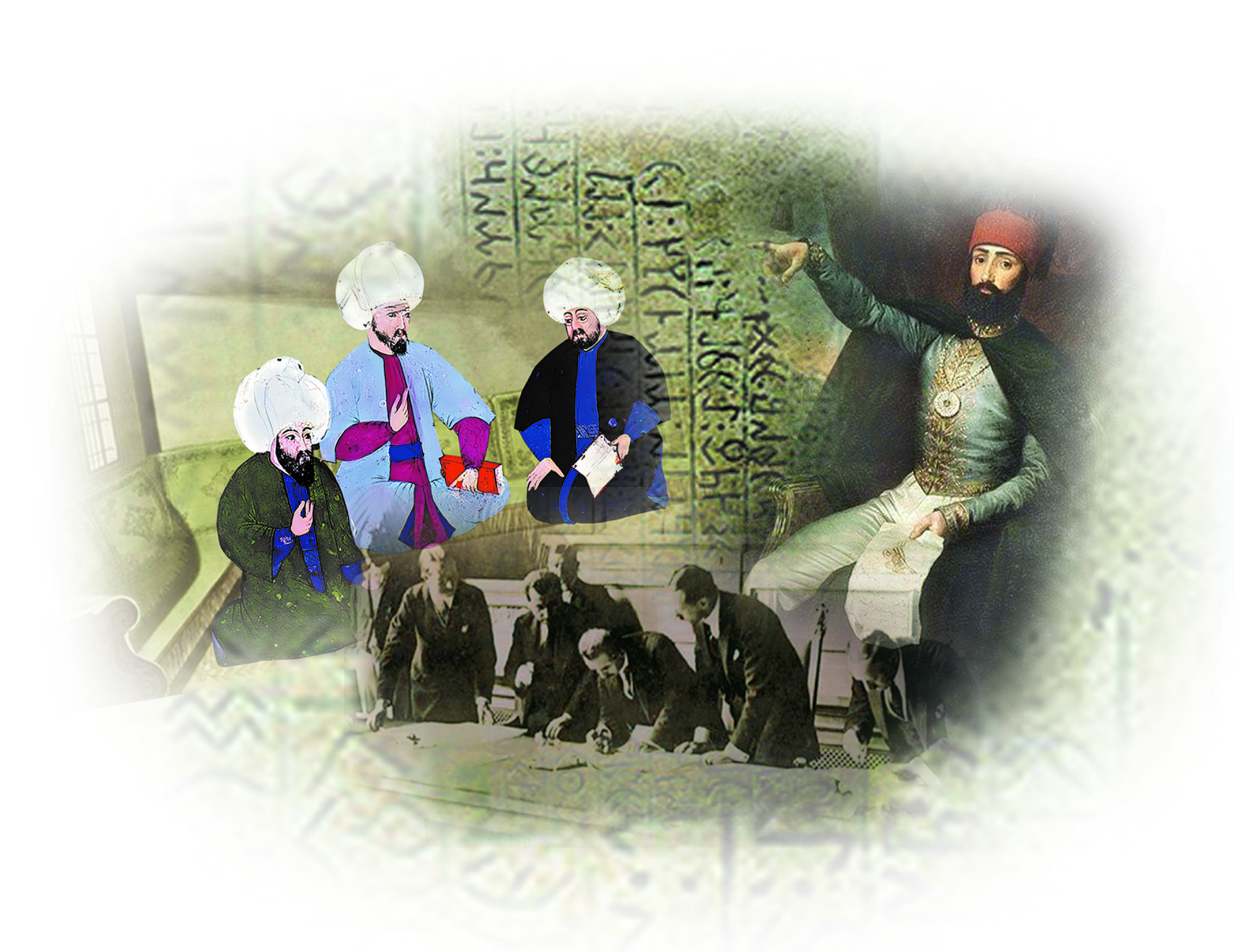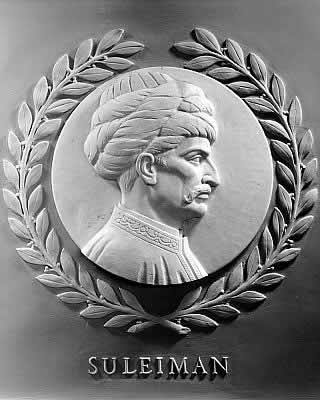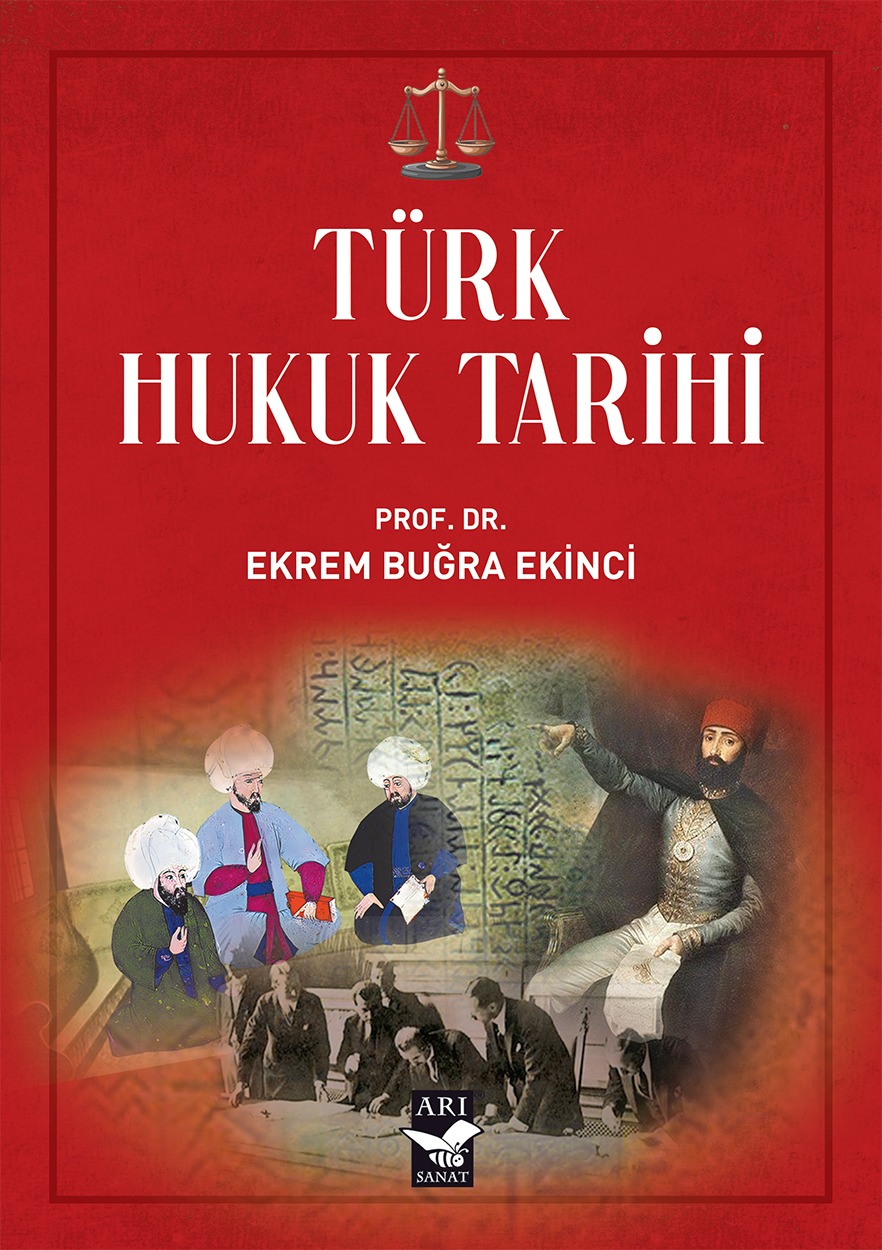.jpg)
THE MILLENNIA-LONG LEGAL JOURNEY OF THE TURKS
Countries stand on justice. Law is the means for the manifestation of justice. States without justice cannot survive, even if they appear devout.
The legal history of the Turks is divided into two major periods: before and after their adoption of Islam. Both periods are fundamentally different from each other.
Post-Islam Turkish law is also divided into two periods: the classical period, which lasted for centuries, and the Tanzimat period.
Finally, with the republic, the Turks embraced a completely different legal system.
The Power of Turkish Customs
Among the ancient Turks, the primary source of law was their customs. These practices, admired and followed by the people for ages, were universally respected. Everyone abided by these customs; khans who defied them lost their thrones, and sometimes even their lives.
It was widely accepted that these customs always upheld what was right and just. In fact, Turkish customs were composed of principles refined from the nation’s centuries-old life experiences.
If necessary, changes or additions could be made to these customs during the spring assembly, where all tribal chiefs gathered once a year.
The expressions in the Orkhon inscriptions reflect a remarkable national consciousness. The khan saw himself as one of the people, holding himself accountable to his subjects. Moreover, he admonished his people for their mistakes, like a father would to his children.
The principles of ancient Turkish law, such as the personal nature of punishments, are particularly admirable. Hundreds of legal documents from the Uighurs point to the existence of a sophisticated legal system.

Sharia and Law
After the Turks became Muslims, they sincerely adopted the legal principles of this religion. Some traditions and concepts from their old laws, which were not contrary to Islam, continued to exist in Turkish political and social life.
From the time of the Karakhanids, great jurists emerged among the Turks or under Turkish rule. They made significant contributions to the law.
The Turks viewed justice as an indispensable element of the state. They abided by the law. The existence of legal principles that even the ruler could not change was always a guarantee for both the local people and foreigners.
However, the ruler could enact administrative and criminal regulations in areas where sharia law deliberately left gaps, through legal codes known as "kanunnames" (books of law). This was called customary law and could not contradict sharia law.
The Relief in Congress
The Qur'an, the proof of Islam, and the hadiths (sayings of the Prophet Muhammad) always command justice and condemn injustice. This last divine religion, like previous divine religions, introduced a legal system to organize society and ensure justice, and Islamic scholars systematized this law.
It became a vast corpus, with various versions applied from the Atlantic coast to the interior of China. It influenced the legal systems of other nations through Sicily and Andalusia.
The Ottomans went further than almost every state in this regard. Even the most biased foreigners expressed their admiration for the Ottoman legal system and justice mechanism.
One of their most famous rulers was nicknamed "Kanuni" (the Lawgiver), not only because he made laws, but also because of his respect for justice. His relief is displayed alongside world-renowned legal figures in the U.S. Capitol.

Foreign in Form, Local in Essence
From the early 19th century, commercial and diplomatic interactions with foreigners increased. It was not easy for foreigners to learn the massive and intricate legal system practiced by the Turks.
Therefore, legal reforms were initiated. Laws that Europeans could understand were enacted, and new courts were established. This period in legal history is called the Tanzimat era. Tanzimat comes from the word “nizam” (order), which means codification.
During this period, which lasted about a century, Europe was taken as a formal model, but sharia principles were preserved until the end of the Ottoman Empire.
During this period, the Turks outside Ottoman rule fell into the colonial networks of Russia, China, and England. However, they were granted limited autonomy in practicing their own culture and laws.
The End of the Story
One of the most significant turning points in history, even one that changed the face of the world, was World War I. One of the treaties signed after the war was the Treaty of Lausanne. The six-century-old Ottoman Empire was buried in history, and several large and small states were established on its remnants.
One of these states, Türkiye, faced significant impositions during the Lausanne negotiations by the victors. Under pressure to abolish sharia law and the caliphate, both for the protection of minorities and the guarantee of foreign privileges, the delegates succumbed.
Ankara made a wholesale transfer of European law. Thus, the thousand-year-old tradition of sharia law, practiced since the Turks embraced Islam, was consigned to history.
Select Sayings from Turkish Legal History
“Governments may pass, but custom remains.”
— Mahmud
al-Kashgari
"Unless the sky collapses above, or the earth cracks below,
who can destroy your custom?"
Bilge Qaghan
“Do not let your enmity towards a group prevent you from
being just.”
Qur'an
“One hour of justice is better than a thousand hours of
worship.”
Prophet Muhammad
“Justice is the foundation of sovereignty.”
Umar ibn
al-Khattab
“In punishing the guilty, the sipahi (cavalryman) and the
peasant, the bey (lord) and the commoner, the rich and the poor are equal.”
(Kanuni) Sultan Suleiman I
“We do not consent to oppression, we incline to
justice.
We seek the approval of God and act upon His command.”
Sultan Mehmed III
“The finger cut by sharia does not hurt.”
Turkish
proverb
“When the judge is the plaintiff and the bailiff the
witness,
Can the verdict of such a court be called justice?”
Ziya Pasha
“Presumption of innocence is fundamental.”
Mecelle
(Ottoman civil code)
“We are undertaking an endeavor to completely create new
laws and uproot the old legal foundations.”
Mustafa Kemal
“The legal revolution of the Republic is one of the most
remarkable events in the Middle East since the emergence of Islam.”
Count Ostroróg

My Turkish book on Turkish Legal History "Türk Hukuk Tarihi" has been published. It is addressed to those curious about the millennia-long legal journey of the Turks.(Arı Sanat Publishing House)
Önceki Yazılar
-
"WOE TO THE ENEMIES OF THE REVOLUTION!" What Was The People’s Reaction To The Kemalist Revolutions?2.07.2025
-
DEATH IS CERTAIN, INHERITANCE IS LAWFUL!25.06.2025
-
THE SECRET OF THE OTTOMAN COAT OF ARMS18.06.2025
-
OMAR KHAYYAM: A POET OF WINE OR THE PRIDE OF SCIENCE?11.06.2025
-
CRYPTO JEWS IN TURKEY4.06.2025
-
A FALSE MESSIAH IN ANATOLIA28.05.2025
-
WAS SHAH ISMAIL A TURK?21.05.2025
-
THE COMMON PASSWORD OF MUSLIMS14.05.2025
-
WERE THE OTTOMANS ILLITERATE?7.05.2025
-
OTTOMAN RULE BENEFITED THE HUNGARIANS30.04.2025